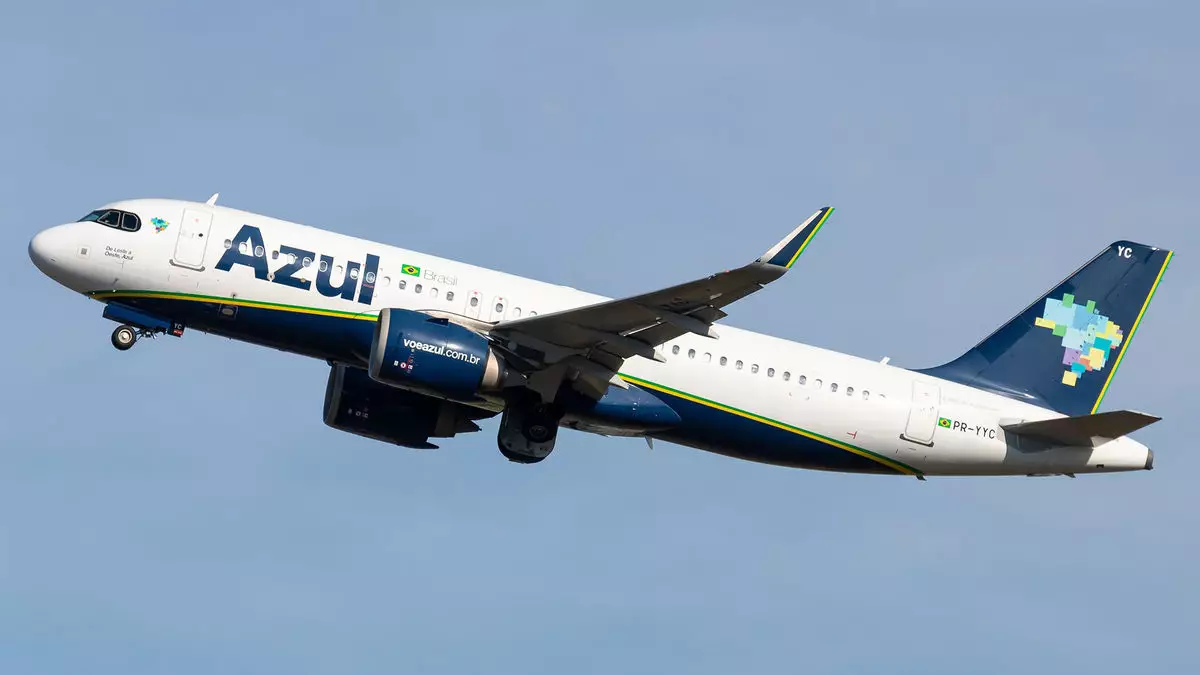In a decisive move signaling resilience amidst adversity, Brazilian airline Azul has filed for Chapter 11 bankruptcy protection. This step, often associated with distress, has been strategically positioned as a proactive endeavor rather than a defeat. With the backing of significant partners like United Airlines, along with a surprising new ally in American Airlines, Azul is not merely seeking refuge but rather opening a door to transformation and renewal.
Azul’s intent to continue operations during this restructuring process is a testament to its commitment to customers and stakeholders alike. The airline has assured the public that it will honor all purchased tickets and loyalty points, a calculated effort to maintain consumer trust during a precarious transition. It’s an optimistic approach; rather than shrinking back, Azul actively reinforces its service offerings by keeping routes operational. Currently, it maintains several connections to major U.S. destinations, emphasizing its strategic positioning within the North American market.
A Financial Phoenix
At the heart of Azul’s restructuring plan is an extensive package designed to overhaul its financial landscape. The $1.6 billion in financing plays a critical role in addressing the staggering $2 billion in debts threatening its sustainability. This is not just a financial bailout; it represents a horizon filled with potential. With a $670 million liquidity cushion during the restructuring, Azul is fortifying itself against unforeseen challenges that may arise as it navigates through these turbulent waters.
The airline’s innovative approach to raising $650 million through discounted shares upon exiting Chapter 11 speaks volumes about its long-term vision. By targeting existing investors, Azul is fostering an environment of collaboration and mutual growth. Moreover, the addition of American and United’s equity investments, which are anticipated to range from $200 million to $300 million, reflects a strategic alliance that may reshape Brazilian aviation.
Strategic Partnerships and Market Positioning
Perhaps one of the most intriguing developments is American Airlines’ involvement in Azul’s restructuring. Traditionally a partner of rival carrier Gol, American’s pivot to support Azul introduces a new dynamic in Brazilian aviation. This surprising partnership could signal a shift in market consolidation strategies within the region, as the potential merger discussions between Azul and Gol could create an aviation giant poised to exceed Latam Airlines in scale and reach.
The context of this alliance is critical. The Brazilian aviation landscape has been characterized by fierce competition and economic uncertainties, particularly in the aftermath of the Covid-19 pandemic. While Gol is concluding its own Chapter 11 process, American’s dual alliances highlight a potential strategy to strengthen its foothold in Latin America’s fast-evolving airline sector. By leveraging Azul’s extensive network—currently operating approximately 300 direct routes with a fleet of 226 aircraft—American is positioning itself for comprehensive growth across the Americas.
A Vision for the Future
CEO John Rodgerson’s vision for Azul transcends mere financial restructuring. Emphasizing the need for a robust and resilient airline, he framed the Chapter 11 process as a strategic opportunity to optimize the airline’s operations both financially and in customer service. This perspective highlights a forward-thinking mentality where recovery isn’t just about surviving but thriving in a competitive landscape.
Azul’s integration of its codeshare and loyalty programs with United Airlines illustrates its commitment to enhancing passenger experiences and building a more interconnected travel ecosystem across the Americas. The intended reformation could establish Azul not just as another airline, but as a critical player in an integrated aviation network that connects travelers seamlessly between continents.
In the evolving world of aviation, where adaptability and innovation are paramount, Azul Airlines’ Chapter 11 filing symbolizes not merely a challenge but a chance to pivot towards a promising future. The proactive measures taken today could well plant the seeds for an industry leader rooted in resilience, resourcefulness, and strategic partnerships that redefine air travel in Brazil and beyond.

